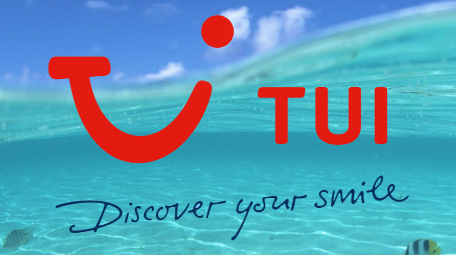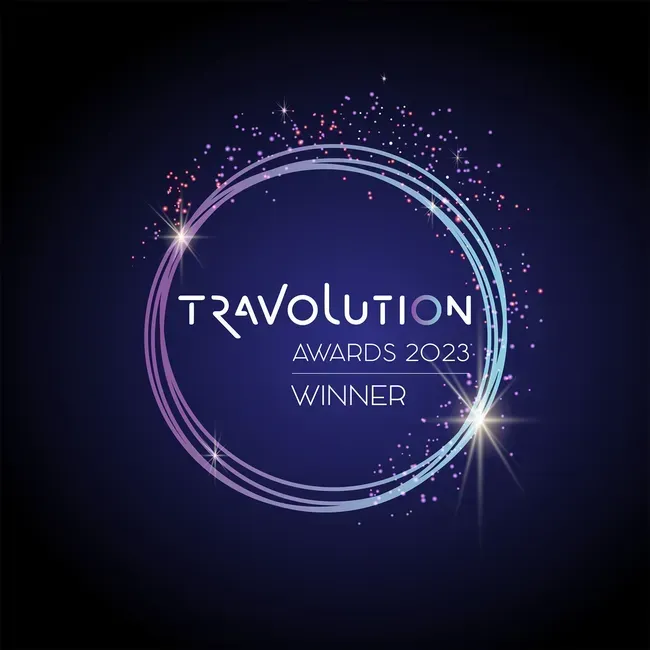What Are The Most Effective SEO Strategies For Marketing A Travel Website?
Marketing your travel website effectively requires a solid SEO strategy that can enhance your visibility and attract potential travellers. You must focus on keyword optimisation, ensuring you target the right terms that your audience is searching for. Additionally, incorporating high-quality content that resonates with your readers can establish your authority and encourage engagement. Don't underestimate the importance of mobile optimisation as many users search for travel options on their phones. By understanding these strategies, you can boost your site’s ranking and drive more traffic, ultimately leading to increased bookings and customer loyalty.

Key Takeaways:
- Keyword Research: Conduct thorough keyword research to identify high-traffic search terms related to travel that your audience is using.
- Quality Content: Create engaging and informative content that addresses travellers' questions, includes destination guides, and showcases experiences.
- Mobile Optimisation: Ensure your travel website is fully optimised for mobile devices, providing a seamless experience for users on the go.
- Local SEO: Implement local SEO practices to attract users searching for services and experiences in specific locations.
- Backlink Building: Focus on building high-quality backlinks from reputable travel blogs and websites to improve your website's authority and search rankings.
Understanding SEO Basics
While navigating the digital landscape, it's crucial to grasp the fundamentals of SEO (Search Engine Optimisation) for the success of your travel website. Understanding SEO can enhance your site's visibility and drive organic traffic, leading to better engagement and conversions.
What is SEO?
Beside improving online presence, SEO is a set of strategies and tactics that help your website rank higher on search engine results pages (SERPs). By optimising your content, you can attract more visitors and ultimately grow your travel business.
Importance of SEO for Travel Websites
Websites that thrive in the travel industry recognise the importance of effective SEO. Since consumers often research and book their trips online, having strong SEO practices can drastically boost your visibility, putting your offers in front of potential travellers when they need them the most.
And, consider that the travel industry is highly competitive; thus, harnessing the power of SEO means standing out among other platforms. Many travellers use search engines to find destinations, hotels, and deals, so optimising your content accordingly can turn searchers into customers. Prioritising SEO enables you to connect with your audience effectively, offering them the information they seek and building trust.
Key SEO Terminology
Before diving deeper, it's important to familiarise yourself with key SEO terminology. Understanding terms like keywords, backlinks, and meta tags will equip you with the knowledge needed to implement effective strategies for your travel website.
Travel websites often utilise various SEO terminologies to improve their performance. From long-tail keywords that target specific traveller queries to anchor text for enhancing link-building efforts, knowing these terms helps you strategise better. Familiarity with these concepts allows you to assess performance metrics, ensuring that your SEO efforts align with your overall marketing goals. The more knowledgeable you are about SEO terminology, the more adept you will become at optimising your travel website efficiently.
Keyword Research
Some of the most effective SEO strategies for marketing a travel website begin with comprehensive keyword research. It enables you to identify the terms and phrases your target audience uses when searching for travel-related content. By understanding these keywords, you can shape your content and improve your website’s visibility on search engines.
Identifying Target Keywords
At the outset, you should focus on identifying target keywords that align with your niche. Consider the interests and travel preferences of your audience. This involves brainstorming phrases relevant to your website, analysing competitors, and using keyword tools to generate a list that can enhance your content strategy.
Long-Tail vs Short-Tail Keywords
Short-tail keywords are broader, consisting of one or two words, while long-tail keywords are more specific and usually longer, comprising three or more words.
A long-tail keyword strategy is often more effective for travel websites because it targets specific search intents. For example, while "travel" is a short-tail keyword, “best travel tips for solo backpacking in Europe” targets a specific audience looking for detailed information. These keywords typically have lower competition, making it easier for you to rank highly in search results.
Tools for Keyword Research
About finding the right keywords, there are various tools available that facilitate the research process. You can use options like Google Keyword Planner, SEMrush, or Ahrefs to discover valuable keywords and analyse their search volume, competition, and trends.
Long-tail keyword tools can provide insights into search behaviour and help you refine your keyword strategy. Additionally, utilising the suggested search feature on search engines can uncover related queries that people are actively searching for, offering opportunities for content creation that resonates with your audience.
On-Page SEO Strategies
Your travel website can significantly benefit from effective on-page SEO strategies. By optimising various elements within your pages, you can improve visibility in search engines and enhance user experience, ultimately attracting more visitors to explore your offerings.
Optimising Title Tags and Meta Descriptions
Meta tags are key elements in your website’s SEO. Ensure your title tags and meta descriptions accurately reflect the content of your pages, incorporating relevant keywords. This not only helps search engines understand your site better but also encourages users to click through when they see your listing.
Creating Quality Content
On your travel website, quality content is your best friend. When you create engaging, informative, and original content, you not only provide value to your visitors but also attract higher search engine rankings. Your articles, blogs, and guides should resonate with the interests and needs of your target audience.
Descriptions of destinations, travel tips, and personal anecdotes can enhance your content and keep visitors engaged. Aim to provide in-depth information that answers common travel questions and offers real value. Highlighting local culture, attractions, and travel hacks can further establish your authority and encourage users to spend more time on your site.
Image Optimisation for Travel Sites
By optimising images, you can enhance your travel website's performance. Make sure to use descriptive filenames and alt text that includes relevant keywords. This will not only help improve your search ranking but also ensure better accessibility for users.
Further, compressing your images for faster load times will significantly improve user experience. Incorporate visually appealing images that complement your content, as stunning visuals can capture visitors' attention and encourage them to explore more about the destinations you are promoting.
Internal Linking Best Practices
By implementing effective internal linking strategies, you can help users navigate your travel website efficiently. This involves using anchor text strategically to link to other relevant pages within your site, which can boost both user engagement and SEO performance.
Optimisation of internal links guides users to discover related content that enhances their experience on your site. For instance, linking a blog about the most popular tourist attractions in a city to another page that offers travel packages can lead to increased conversion rates. Aim to create a logical structure that nurtures deeper site exploration by your visitors.
Technical SEO
Unlike many other aspects of digital marketing, technical SEO focuses on the underlying framework of your travel website. By optimising your site's technical elements, you can significantly enhance its visibility and user experience, ultimately leading to higher search engine rankings. Key components of technical SEO include site speed, mobile responsiveness, structured data, and URL structure best practices. Each of these areas plays an integral role in ensuring your travel website performs effectively in search engine results.
Site Speed and Performance
About 47% of users expect a web page to load in two seconds or less, making site speed and performance a top priority for your travel website. Optimising images, leveraging browser caching, and minimising redirects can improve loading times, resulting in a better user experience and potentially higher rankings in search results.
Mobile Responsiveness
Among the various factors that contribute to an effective SEO strategy, mobile responsiveness is increasingly important. With a growing number of travellers using mobile devices to plan and book their trips, ensuring your website is mobile-friendly will not only improve user experience but also elevate your visibility in search engine results.
Mobile responsive design ensures that your travel website adapts seamlessly to various screen sizes and devices. This means users can easily navigate your site whether they are using a smartphone, tablet, or desktop. A responsive layout reduces bounce rates and keeps visitors engaged, which can positively impact your search engine rankings.
Implementing Structured Data
Technical implementation of structured data helps search engines better understand your site’s content. By using schema markup, you can enhance your travel website's appearance in search results with rich snippets, such as star ratings, prices, and availability. This improved visibility can attract more qualified traffic to your site.
But the benefits of structured data go beyond aesthetics; it can lead to improved click-through rates (CTR) and higher-quality leads. Implementing schema markup can also help search engines index your content more efficiently, which is particularly beneficial for your travel offers and packages. In such a competitive niche, structured data could give you an edge over other travel websites.
URL Structure Best Practices
Speed and clarity are important when it comes to URL structure best practices. A clean, easy-to-read URL not only enhances user experience but also plays a significant role in SEO. Ensure your URLs are descriptive and include relevant keywords related to your travel content, making it simpler for both users and search engines to understand.
Implementing effective URL structure practices involves using hyphens instead of underscores, avoiding unnecessary parameters, and keeping URLs as short as possible. Clean URLs not only enhance the overall user experience but also improve your website's crawl efficiency, ultimately supporting your SEO strategy. A well-structured URL can be the difference that attracts users and search engines alike to your travel website.
Off-Page SEO Strategies
Many travel website owners often overlook the significance of off-page SEO strategies. These tactics are imperative to enhancing your website's visibility and authority within search engines, leading to increased organic traffic and successful marketing outcomes. Engaging with your audience and building relationships online will ultimately enhance your site's reputation.
Building Quality Backlinks
Between establishing a strong network and gaining recognition, quality backlinks are vital. By obtaining links from reputable travel-related websites, you not only boost your site's credibility but also improve its search engine ranking. Focus on creating valuable content that naturally attracts links, as well as reaching out to fellow travel bloggers and news outlets for guest post opportunities.
Social Media Integration
For effective promotion of your travel website, integrating social media is imperative. Platforms such as Instagram, Facebook, and Twitter can help you connect with your audience in real-time, share intriguing content, and drive traffic back to your site. Additionally, regularly engaging with users can create a more loyal and interactive customer base.
Strategies like sharing beautiful travel photos or offering travel tips on your social media channels can significantly enhance user engagement. By posting consistently and utilising relevant hashtags, you can reach a wider audience and entice potential travellers to visit your website. Furthermore, encouraging user-generated content will create buzz around your brand while fostering an authentic connection with your audience.
Influencer Collaborations
Along with traditional marketing techniques, collaborating with travel influencers can elevate your website's visibility. Partnering with social media influencers who align with your brand can help you reach their dedicated followers, thus broadening your target audience. Look for influencers who are genuine and have an engaged community interested in travel-related content.
Hence, when choosing influencers for collaboration, consider their engagement rate and audience demographics to ensure your brand message resonates with potential customers. By offering them unique experiences or hosting giveaways, you can generate excitement around your travel website, leading to organic traffic increases and potential sales conversions.
Local SEO Tactics for Travel Businesses
OffPage optimisation can greatly benefit your travel business through local SEO tactics. Ensuring that your website appears in local search results is vital for attracting nearby travellers. Implement strategies like creating a Google My Business profile and optimising local keywords to improve your visibility.
Plus, leveraging local reviews and testimonials can significantly impact your travel website's success. Regularly engage with your customers through follow-up emails or social media to encourage them to leave reviews. These positive testimonials not only enhance your online reputation but also help boost your local rankings on search engines, ultimately driving more traffic to your travel website.
Content Marketing
All successful travel websites rely on effective content marketing strategies to reach their target audience. This involves creating valuable, high-quality content that resonates with travellers and encourages them to engage with your brand. By utilising various content formats such as blogs, videos, and infographics, you can improve your website's search engine visibility and establish yourself as an authority in the travel niche.
Blogging for SEO
By consistently producing insightful, well-optimised blog posts relevant to your audience, you not only enhance your website’s SEO but also solidify your brand's expertise. Utilise keywords effectively and provide actionable tips to encourage engagement and sharing.
Visual Content Strategies (Videos, Infographics)
Around 90% of the information transmitted to the brain is visual, making it imperative for travel marketing. Incorporating videos and infographics can engage viewers emotionally, capturing their interest and encouraging them to explore your offerings further.
Infographics serve as an effective way to convey complex information in a visually appealing format, making your content more shareable. Additionally, travel videos can showcase destinations in a captivating manner, allowing potential customers to experience your offerings before making a decision. Both formats can enhance user engagement, reduce bounce rates, and boost your site's authority in search engines.
User-Generated Content and Reviews
Any travel website can significantly benefit from incorporating user-generated content and authentic reviews. This not only increases trust among potential customers but also improves your website's ranking on search engines.
The value of user-generated content lies in its authenticity. When travellers share their experiences and reviews, it not only creates a sense of community but also boosts your credibility. Encourage customers to post their photos and testimonials to increase engagement and foster loyalty on your platform.
Developing a Content Calendar
Marketing effectively requires you to plan ahead. Developing a content calendar helps you streamline your content creation process, ensuring that you remain consistent and relevant in your messaging.
And with a structured content calendar, you can identify key travel trends and seasonal events to align your content strategies accordingly. This ensures that you not only stay on track but also capitalise on opportunities to engage your audience when they are actively searching for travel-related content. By staying organised, you can enhance the overall effectiveness of your marketing strategy.
Monitoring and Analytics
Now that you have implemented various SEO strategies, monitoring and analytics become crucial to your success. By keeping a close eye on your website's performance, you can make data-driven decisions to enhance your travel website's visibility and user experience.
Using Google Analytics for SEO Tracking
Behind every impactful marketing decision lies data, and Google Analytics is a powerful tool to track your SEO performance. You can monitor visitor behaviour, understand which pages attract the most traffic, and identify conversion rates. This information helps you refine your content and optimise your SEO efforts effectively.
SEO Tools and Software
Tracking your SEO progress is simplified by utilising a variety of SEO tools and software. These tools, such as SEMrush, Moz, or Ahrefs, allow you to analyse keyword rankings, backlinks, and competitor strategies. With these insights, you can adjust your tactics for maximum impact.
To take full advantage of SEO tools and software, regularly run audits on your website. By doing so, you remain aware of your site's health, and you gain insights into technical SEO issues that could hinder your performance. These tools can also help identify new keyword opportunities and track your progress over time.
Measuring Success and Adjusting Strategies
Behind effective SEO strategies is the continuous process of measuring success and making necessary adjustments. By analysing data from your monitoring tools, you can determine which strategies are working and which need improvement.
Analytics play a significant role in driving your decision-making process. By evaluating your site's traffic sources, user engagement metrics, and conversion data, you can identify patterns and trends. This information allows you to pivot your strategies, ensuring your travel website remains competitive and aligns with your audience's needs.
To wrap up
Following this guide, you can implement effective SEO strategies tailored for your travel website. Focus on optimising your content with relevant keywords, leveraging high-quality backlinks, and enhancing user experience through mobile responsiveness and fast loading times. Additionally, utilising local SEO techniques can significantly attract tourists to your offerings. By consistently analysing your performance and updating your strategies, you will enhance your visibility and engagement in the competitive travel market.
FAQ
Q: What are some necessary keyword strategies for optimising a travel website?
A: To effectively optimise a travel website, start by conducting thorough keyword research using tools like Google Keyword Planner or SEMrush. Focus on long-tail keywords that are specific to your niche, such as "best family vacations in Hawaii" or "affordable luxury hotels in Paris." Additionally, include local SEO keywords to attract regional traffic, ensuring that you target your audience effectively. Consistently incorporate these keywords into your website’s content, including titles, meta descriptions, headers, and blog posts, while maintaining natural readability for users.
Q: How can content marketing enhance the SEO performance of a travel website?
A: Content marketing plays a significant role in SEO by driving organic traffic and engagement. Create valuable, informative, and shareable content such as travel guides, itineraries, and tips that can cater to your target audience. Consider starting a blog that focuses on unique travel experiences, local culture, and hidden gems. Utilise visual content like photos and videos to enhance engagement. Promoting this content through social media and collaborations with influencers can increase visibility and backlinks, which are necessary for improving your website’s ranking on search engines.
Q: What role does link building play in the SEO strategy for a travel website?
A: Link building is crucial for establishing authority and increasing the online visibility of a travel website. Aim to acquire high-quality backlinks from reputable travel blogs, tourism boards, and industry-related websites. This can be achieved by guest posting, creating shareable infographics or resources, and engaging in partnerships with other travel organisations. Internal linking is also important; ensure that your own pages link to one another effectively to help improve site structure and guide users through your content. A diverse and strong backlink profile will significantly boost your site's credibility in the eyes of search engines.












